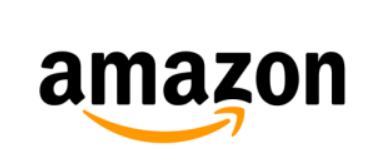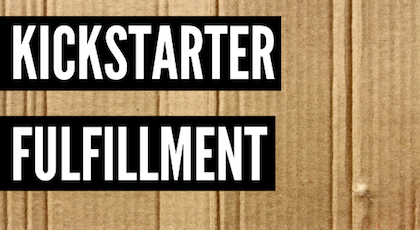E-commerce is a term that encompasses all the buying and selling that happens online, and each year the e-commerce world expands a little more.
Recently, e-commerce has taken on a new importance, and businesses are starting to clue into the value of the sales that take place online.
If you’re considering getting in on the e-commerce boom, you should know that selling products online is an excellent way to bring in a substantial income on your own terms.
It’s also one of the primary ways companies thrive in a world guided by the internet.
Now that you’re ready to start an e-commerce business, one of your first steps is to choose a platform to facilitate your sales.
Whether you want to market your own products or resell used or collectible items, there are a number of easy-to-use online platforms designed to help you bring in capital.
This article will go over ten of the most popular places to sell products online and what makes each of them unique so that you can choose a platform that works for you and start learning how to sell products online successfully.
But first, here’s one of our biggest online selling tips for beginners:
Although you aren’t required to become a registered LLC to run an online business, it can help a lot.
LLC owners are not personally responsible for any debts incurred by their business and they can qualify for certain tax deductions.
So if you haven’t incorporated your online business into an LLC yet, we’d like to introduce you to incfile.com, an award-winning platform that helps entrepreneurs officially form LLCs.
It’s the easiest and most affordable site we know of for this, so we highly recommend checking it out if you’re interested in selling products online for companies.
That being said, let’s take a look at the 10 best places to sell products online from home.
1. Amazon
Amazon is a massive e-commerce platform with hundreds of millions of customers worldwide.
They also claim to host around 7,400 sales per minute from U.S-based sellers alone, so if you need to reach a big audience with your product.
Another advantage to Amazon is the large variety of categories they feature. They have 33 main categories divided into around 25,000 sub-categories, making it easy to find your niche on Amazon.
The best-selling categories on Amazon include electronics, clothing, home and kitchen, beauty and personal care, books, pet supplies, and sports and outdoors.
Fees include a $39.99 monthly subscription fee plus selling fees.
2. Shopify
Now that you’ve decided to branch out into the world of e-commerce, why not set up your own webpage so that you can cultivate your brand?
Shopify is a site that makes it easy for e-commerce businesses to sell products online through their own websites.
Through Shopify, sellers can purchase their own domains and customize their online stores to reflect their brands.
Shopify helps sellers manage products, payments, and shipping so that commerce can take place over a variety of mediums both online and in-person.
If you want the freedom to customize your e-commerce store and control sales channels, Shopify is definitely worth your time.
3. Wix
With a portfolio of over 700,000 stores, Wix is another great platform that enables e-commerce businesses to set up pages.
Wix users can customize their own HTML5 websites, which they can use to sell products online through multiple channels all over the world.
While sellers maintain complete control over their merchandise and business models, Wix helps with product listing and payment processing for each transaction.
If you’re looking to integrate your e-commerce business with in-person sales, you might also get a lot of utility out of Wix’s POS (point of sale) system, which processes payments in person.
The best part? It’s totally free to sign up!
4. eBay
eBay is a large platform with a multinational user base. It’s been around since 1995, making it one of the most popular and reputable e-commerce sites.
eBay makes it easy to anyone to set up an online store and start listing new or used items.
In addition to setting fixed prices, eBay sellers can list starting prices for items. Buyers can bid on items for a set period of time, after which the highest bidder gets the item, an arrangement that makes both buyers and sellers more likely to reach agreeable prices.
eBay calculates fees as a percentage of the total sale amount plus $0.30 per order. If you post more than 250 listings in a single month, you will also be charged an insertion fee.
They also allow sellers to pay monthly subscription fees ranging from $7.95 to $2,999.95 to set up their own eBay stores and circumvent per-sale and insertion fees.
5. eBid
Similar to eBay, eBid uses auction-style and fixed-price selling to help users sell products online.
Their marketplace is comprised of over 25,000 categories to accommodate a number of products, including new, used, and handcrafted items.
Listing products on eBid is free, but adding “extras” such as subtitles, multiple photos, and highlighted listings, can incur small fees ranging from $0.05 to $0.18.
Sellers with multiple identical items to sell can create multi-item listings, in which sellers specify both a bid and the quantity they want to buy, so eBid can be a great choice for companies looking to sell products in bulk.
6. Etsy
Etsy is a large e-commerce platform that specializes in helping indie creators sell handcrafted products online, and it’s popular among both individuals and growing startups.
If you are a creative artist or simply have a niche product to sell, you can access a customer base of millions by creating a listing on Etsy.
Most products listed on Etsy are handcrafted by the seller, but vintage items also have a place there.
It costs $0.20 to create a listing on Etsy, plus a 6.5% transaction fee and a 3% + $0.25 payment processing fee.
7. Bonanza
Bonanza is another great place for independent creators and startups to sell unique products online.
Through Bonanza, sellers can feature a variety in their “booths”, which function as their online stores.
According to Bonanza, these booths make it easier for buyers to find what they’re looking for and allow sellers to acquire a clientele of repeat customers.
The best-selling product categories on Bonanza include Fashion, Home & Garden, Health & Beauty, and Collectibles & Art.
Bonanza charges a $0.25 transaction fee, but sellers can purchase active membership subscriptions to avoid this.
8. Craigslist
The popular site Craigslist has a reputation for being one of the easiest online selling platforms out there.
It also has a reputation for being one of the most versatile. Virtually any product or service can be solicited through Craigslist, and apart from ads for jobs, cars, or real estate, listings on Craigslist are completely free to post.
It’s important to note, however, that Craigslist is more of a marketing site than an e-commerce site.
Posting an ad on Craigslist for your city can help you find potential buyers for your product, but the transaction itself usually takes place outside of Craigslist.
You and your buyer will have to arrange details such as payment and shipping between yourselves.
9. Facebook Marketplace
If you’re looking to sell a product online to your local community, Facebook Marketplace is another great platform for both businesses and individuals to start their e-commerce journey.
Facebook Marketplace features eighteen product categories, and excluding controlled substances, weapons, subscription packages, and live animals, almost any type of product or service can be listed there.
Listing a product on Facebook Marketplace is completely free, but like Craigslist, Facebook Marketplace does not facilitate payment processing and order management.
However, since they are partnered with a number of e-commerce platforms that do provide these services, e-commerce businesses can still use Facebook Marketplace to advertise.
10. Ruby Lane
Ruby Lane is a growing e-commerce site oriented around vintage, unique, and high-end products, and it has a reputation for featuring products that can’t be found anywhere else.
Ruby Lane is a perfect place to sell your antique collectibles and hand-crafted novelties, but there are a few restrictions on what you can list.
Only authentic vintage goods and unique or fine craft contemporary products can be featured there. Mass-produced items are not allowed unless they are signed by a designer or luxury brand.
It is free to join and post a listing on Ruby Lane, but they do charge a 9.9% service fee on sales and monthly fees for sellers listing less than 15 items per month.
Conclusion
So, which of these sites is the best for e-commerce?
The best platform is the one that boosts sales for you, and that depends on a lot of different factors, such as what type of products you’re selling and how you’re marketing your business.
That’s why we recommend shopping around a bit.
Don’t be afraid to try out multiple platforms and launch accounts on several sites at the same time.
This way, you can compare them and find out which channels are bringing in the most revenue.
But keep in mind, there’s a lot more to launching a successful e-commerce business than simply setting up an online store.
You’ll also need to do some research into how to sell online so that you can get a handle on the best strategies for marketing and managing your products.
Remember: your business deserves to thrive. Give it your best shot!




